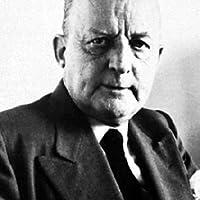
Reinhold Niebuhr
À propos de l'auteur
Reinhold Niebuhr was a prominent American theologian, ethicist, and public intellectual, known for his contributions to Christian realism and social ethics. He was a significant figure in the 20th-century theological landscape, with his writings addressing the complexities of human nature, morality, and politics. Niebuhr's most influential work, "Moral Man and Immoral Society," critiques the contradictions of human behavior in social contexts, arguing that individuals often act morally while societies act immorally. His insights into the nature of sin and the necessity of humility in the face of political power resonate deeply with contemporary discussions about ethics and governance.
Niebuhr's thought was shaped by historical events such as the rise of fascism and communism, as well as the challenges of American capitalism. His emphasis on the limits of human reason and the importance of grace has made him a lasting influence in both religious and secular circles. His legacy continues to inspire theologians, philosophers, and political leaders, reflecting the ongoing relevance of his work in addressing moral dilemmas in a complex world.